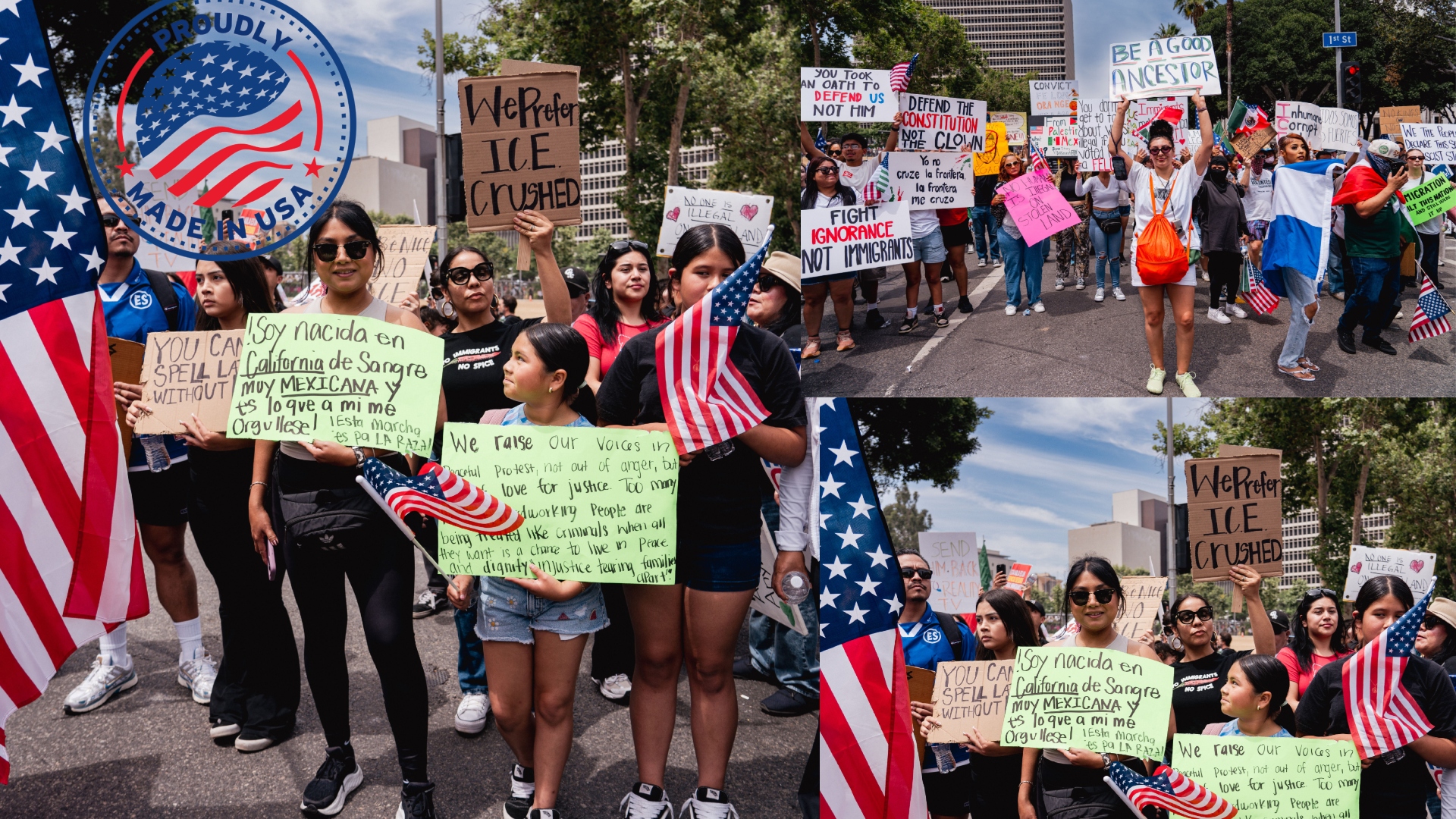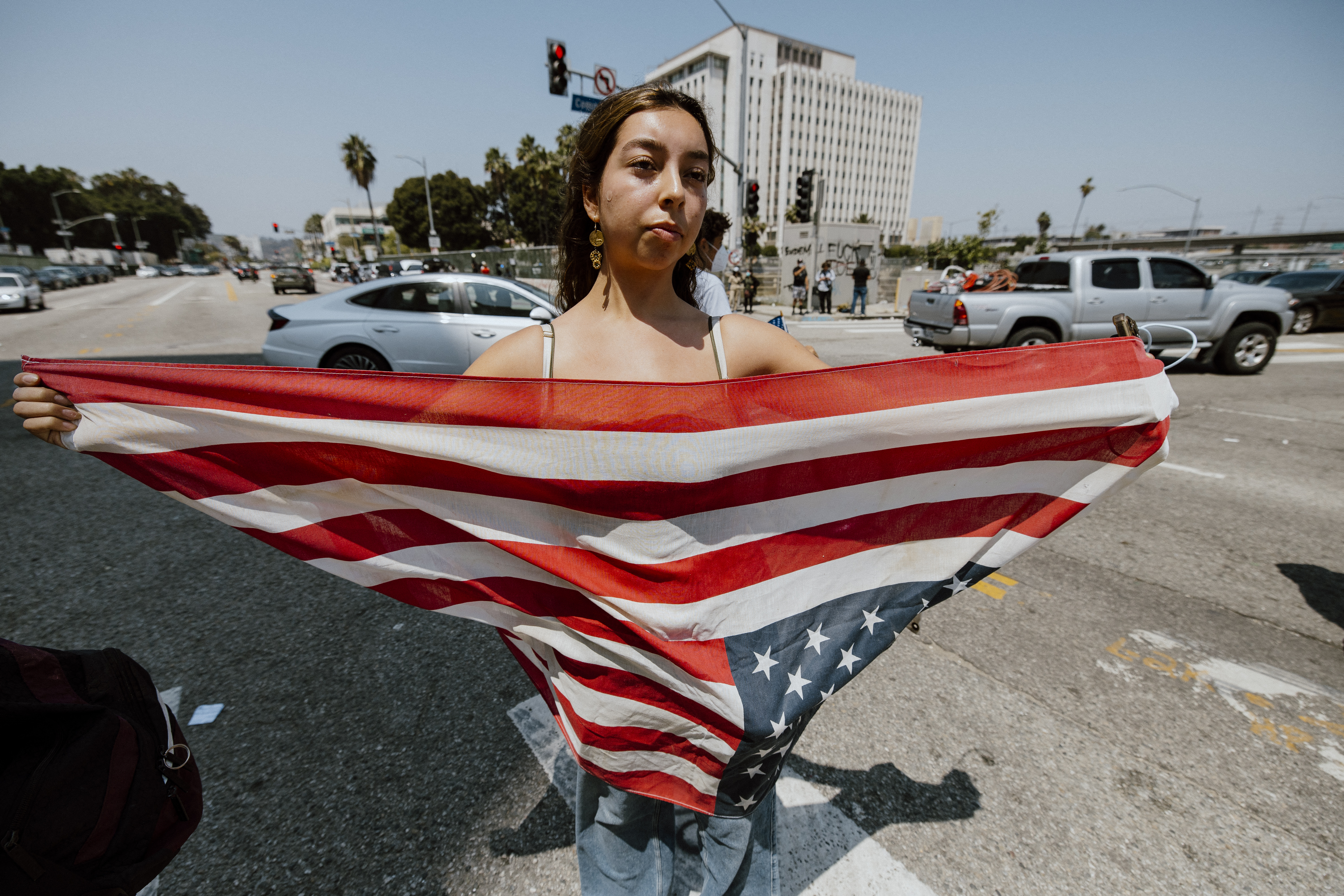With ICE Raids and Rising Tariffs, Female Fashion Founders Are Hanging On by a Thread
As low-wage workers are being targeted in L.A., Made-in-America takes on a whole new meaning.


Select the newsletters you’d like to receive. Then, add your email to sign up.
You are now subscribed
Your newsletter sign-up was successful
Want to add more newsletters?

Delivered daily
Marie Claire Daily
Get exclusive access to fashion and beauty trends, hot-off-the-press celebrity news, and more.

Sent weekly on Saturday
Marie Claire Self Checkout
Exclusive access to expert shopping and styling advice from Nikki Ogunnaike, Marie Claire's editor-in-chief.

Once a week
Maire Claire Face Forward
Insider tips and recommendations for skin, hair, makeup, nails and more from Hannah Baxter, Marie Claire's beauty director.

Once a week
Livingetc
Your shortcut to the now and the next in contemporary home decoration, from designing a fashion-forward kitchen to decoding color schemes, and the latest interiors trends.

Delivered Daily
Homes & Gardens
The ultimate interior design resource from the world's leading experts - discover inspiring decorating ideas, color scheming know-how, garden inspiration and shopping expertise.
From the first stitch of a sewing machine to the finishes on a hem, women have long powered Los Angeles’s independent fashion scene—and this summer, their businesses are on the edge. Dozens of female founders built their brands around the promise of “Made in America,” investing sweat equity and community ties to keep production local. Now, a surge of ICE raids—ordered by the Trump administration to target low-wage industries—has emptied out the garment district—home to about 40,000 workers—and thrust those very labels into crisis.
Marissa Nuncio, director of the Garment Worker Center, has spent recent weeks fielding unrelenting calls from seamstresses and cutters. “Workers are telling us that they’re fearful of going to work, that they’re fearful of going to the grocery store, that they need to go to the clinic…but they’re too scared to leave the house,” she says, describing an entire network of women-led teams paralyzed by anxiety and uncertainty. When basic errands and everyday needs become battlegrounds, production is certainly impossible.

A woman holds out a U.S. flag as protesters continue anti-ICE demonstrations in Los Angeles, California, in early June.
Swimwear designer Natasha Tonic has felt the impact firsthand. Her dye house—run largely by artisans—saw half its staff drop off overnight. “My business is exactly in the center of the fashion industry in Los Angeles downtown, where all the protests happen, and it was wild—helicopters, police, everyone was scared. Then you go into the place where I color my materials, and half the people aren’t there,” she recalls. With production timelines slipping, retail partners are already bracing for delays that could stretch months.
Daniela Rodriguez, founder of denim label Neems, launched her brand believing that American factories—and the women who run them—could set a new standard for quality and ethics. “About two weeks ago, our factory manager called me, terrified—he let me know that ICE was at the Home Depot across the street detaining people. Since then, most of our factory workers have been staying home, fearing that may be the last time if they leave their house,” Rodriguez explains. With hours now limited—and factories open only for shortened shifts to minimize risk—Rodriguez's plans to explore production options abroad have been expedited.
The ‘Made in the USA’ label now carries the risk that you might have separated a family—because a worker showed up to work and got caught in a raid.
Just as the fashion industry has been bracing for tariffs—meant to nudge brands toward reshoring—this wave of enforcement has upended their plans. Tariffs on imports from countries like China were supposed to encourage domestic sewing, theoretically reducing costs as local factories filled up. Instead, empty floors and skeleton crews have erased any operational gains and injected a fresh layer of risk.
"This poses existential threats, not just for immigrant communities, but also for American manufacturers,” warns Irys Kornbluth, COO of Everywhere Apparel, which partners with mission-driven labels to produce recycled-fabric merch. “This move could put so many U.S.-made apparel companies out of business.” Brands once celebrated for giving women jobs and fostering creative careers now find themselves weighing the value of U.S. rates against shuttered production lines.
What was once a badge of honor—“crafting in L.A.” with women at the center of every seam—now carries a question mark. Kornbluth warned that these raids and tariffs “could put countless USA-made apparel companies out of business,” turning a symbol of quality into one of acute uncertainty.
Get exclusive access to fashion and beauty trends, hot-off-the-press celebrity news, and more.
As Nuncio reminds us, low-wage jobs and, more importantly, humans are under direct threat and have ripple effects beyond the factory floor. If the garment district stays dark, brands will have little choice but to offshore or fold altogether. Kornbluth points out that “the ‘Made in the USA’ label now carries the risk that you might have separated a family—because a worker showed up to work and got caught in a raid.”
Although tariffs are sold as a boost for domestic industry, the administration’s indifference to the collateral damage in the textile sector has been made clear. For the women leading L.A.'s indie labels, the dream of building resilient, American-made clothing businesses now hangs in the balance.

Alyssa Hardy is a journalist and author based in New York City. She was formerly senior news editor at InStyle and fashion news editor at Teen Vogue. She is the publisher of “This Stuff,” a weekly fashion newsletter. Her work has been featured in Vogue, NYLON, Refinery29, Fashionista, and elsewhere. Her book Worn Out: How Our Clothes Cover Up Fashion’s Sins comes out in September 2022.